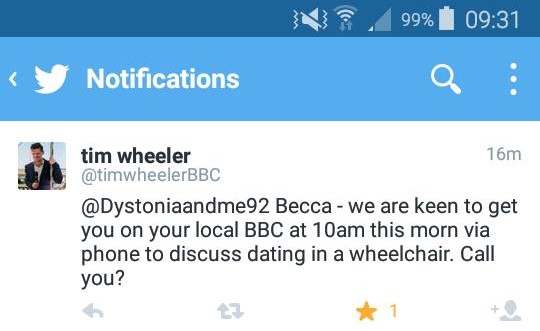As the world adjust to Covid-19, those of us shielding in the UK (and the thousands of other impacted disabled folk) have read multiple news report to see how it will impact us next. Reading through each new regulation brought in to ‘flatten the curve’ screamed ableism. Whilst I agree the new rules were needed there was no consideration for the disabled people in society. Even under tier three regulations when we were allowed to reemerge from our homes after months of shielding, the regulations had no adaptions for us. They were discriminatory at best; put yourself in our shoes and suddenly being faced with having no access to a public disabled bathroom, having to que to shop with no where to sit when your physically need to, a lack of parking because many disabled spaces are now being taken up by outdoor seating for pubs and restaurants. Many disabled people who were being interviewed for research by Inclusion London reported that they felt excluded and marginalised.
There was a fantastic article in The Guardian today, with an interview by paralympian Sophie Carrigill addressing inequality, specifically around how the needs of disabled people have been ignored throughout our multiple lockdowns; you can read the article here. I completely agree with her, my social media is full of adverts every couple of scrolls trying to encourage me to sign up to one fitness program or another. Even my gym is going live and notifying me, along with influencers left, right and centre. Yet I am aware of only two people currently who cater with workouts for the disabled. What really shocked me though was when I went to comment under the article on facebook. It was disability discrimination and frankly simply disability hate comment after comment. The completely ignorance of people was astounding.
Adaptive Workouts – Disability FriEndly
A fellow Dystonia warrior Gina, runs Adaptive Martial Arts (I’m meant to be trying this when I’m having a healthy run myself!), which you can do via Zoom currently. The second, is a woman I recently found on instagram who teaches dance via her wheelchair her handle is @katestanforth .
Disability Discrimination – The evidence
There has been a significant rise in negative attitudes towards people with disabilities since the start of the pandemic, or to be more specific since the start of the shielding and need to wear a mask. Its not hard to find evidence of this, its all over social media but also sadly there multiple news and police reports on the subject.
A report by the neighbourhood watch found that a recent survey carried out found 62% of deaf and disabled people organisations reported an increase in disability hate crime referrals on the previous weeks – this was just after it was announced face masks were to become mandatory. I myself have twice been yelled at for not having mask on, once whilst relocating my jaw and once yesterday whilst having a sip of a drink.
The findings from Inclusion London Briefing are really quiet troubling about the rise in Disability Hate Crime during the course of this pandemic, you can read it here. To name a few examples 1) A rise in hate crime by neighbours including a rise in hate crime against disabled children whilst they are at home by neighbours. 2) A rise in verbal abuse against disabled peoples and instances of being spat at whilst out of the home due to inaccurate perception the disabled person being a ‘virus spreader’. 3) An in increase in online hate crime, often on social media platforms, in which disabled have been that their lives are inferior and that they are taking up resources from non disabled people.
Disability Inclusion Post Lockdown
Where do we go from here? It’s going to take a lot of work and advocacy to get us to some level of equality – which the Inclusion London Briefing article briefly does touch on. I don’t know when that will happen and how we go about getting the public to flip their perception again. Part of the way that perhaps that can happen is that when we come out lockdown the regulations allows for disabled people to use our bathrooms when necessary, and doesn’t turn our much coveted gold dust parking spots into garden seating for pubs. But that would only be the start, we need a whole lot more to turn peoples attitudes around.


